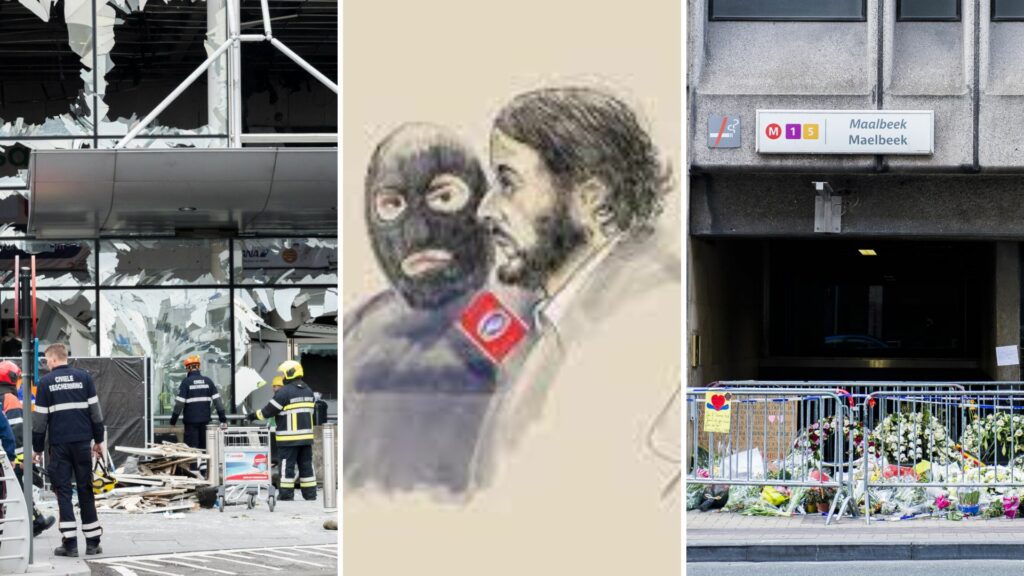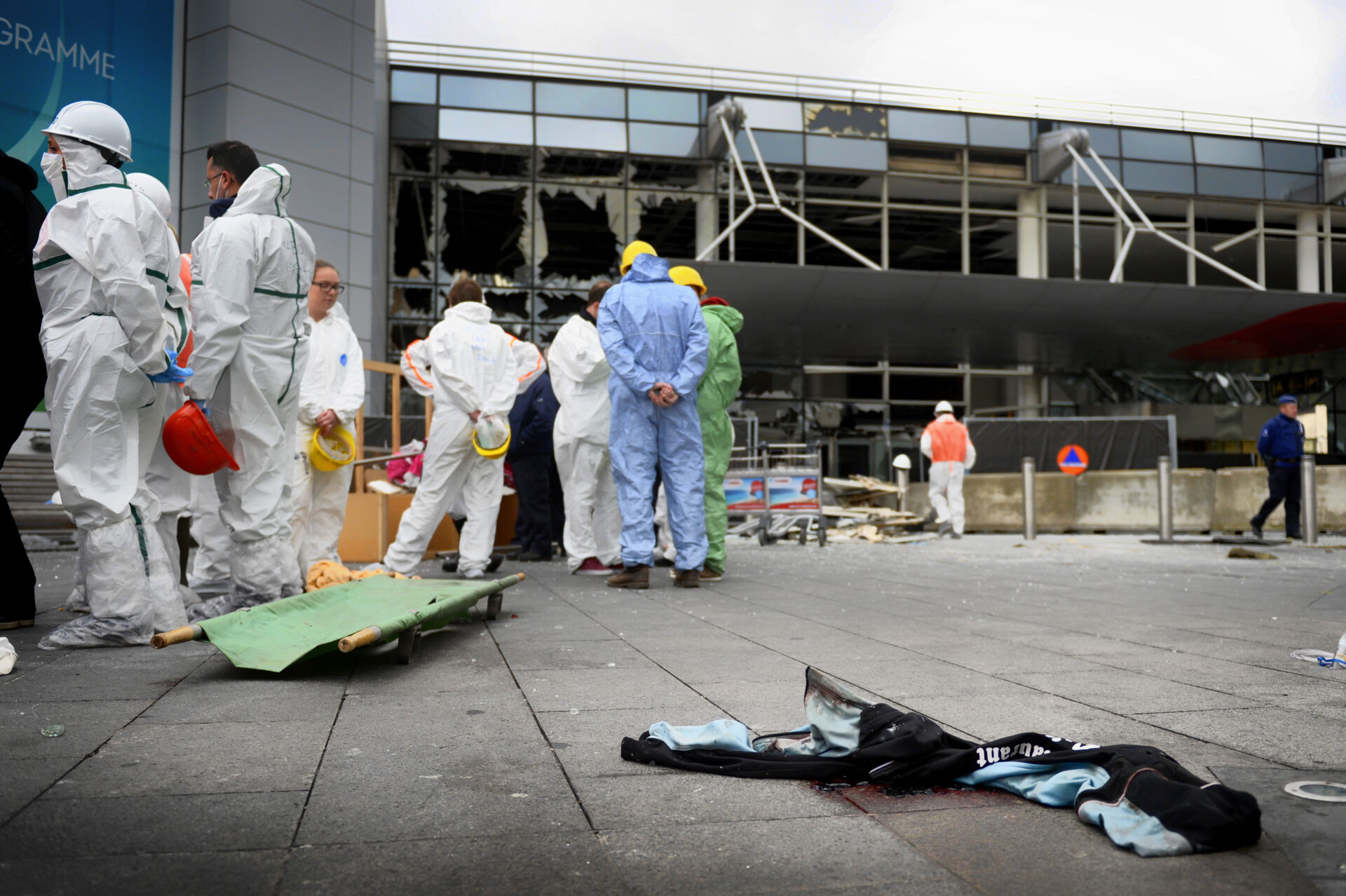Preparations are underway for the biggest trial in Belgium's history, which starts properly on Monday as the ten accused of the 2016 terror attack will be brought before the court. Proceedings had been supposed to begin in October but were delayed over issues with the glass box the suspects will be held in.
As the country's judicial machine kicks into a gear never before seen, the scale of the procedure has sparked interest not only in this trial but the legal system more broadly. Today, almost a kilometre of cars queued to pass security checks as the 1,000 Belgian citizens present themselves to the preliminary hearing for jury service.
Of those shortlisted only 36 (24 permanent and 12 substitutes) will eventually be selected, their names drawn from an urn. The trial is expected to last six months, during which jobs and travel plans must be put on hold. Many have already requested an exemption though judges will only grant these in exceptional cases – such as pregnant women, those with a chronic illness, or anyone with a direct link to the traumatic events.
Yet the process will be an arduous affair, taxing not only for its length but also the emotional strain it will place on participants. The attacks at Brussels Airport and Maelbeek metro station killed 32 and injured some 340 civilians. Images of the aftermath will be presented and jurors must wait until the case has been presented fully before delivering their verdict.
Of the ten defendants on trial, several have already been found guilty of the 2015 Paris terror attacks. Yet whereas the Paris trial featured a professional jury, Belgium's will be selected from civilians from all walks of life. In recognition of the high demand that will be placed on the jurors as well as others involved in the trial (magistrates, security personnel etc.) an allowance for psychological support will be granted.
Belgium in Brief is a free daily roundup of the top stories to get you through your coffee break conversations. To receive it straight to your inbox every day, sign up below:
1. After 60 years, Belgium hands over birth certificate to mixed-race Métis person
On Wednesday, Belgium officially handed over the first birth certificate to a Métis – children (who are now adults) born to Congolese, Rwandese or Burundi mothers and Belgian fathers in one of these countries when they were under Belgian colonial rule – in the town hall of the municipality of Wuustwezel in Antwerp. Read more.
2. Brussels terror attacks: Ten suspects to stand in Belgium's biggest trial
The trial of ten of the alleged perpetrators of the 22 March 2016 Brussels terror attacks — in which 32 civilians were killed and more than 300 injured — is set to begin this Monday. Here is an overview of the accused: Read more.
3. Brussels terror trials: Selecting 36 citizen jurors
The trial of the ten suspects of the 2016 terrorist attack in Brussels resumes on Wednesday after a two-month delay caused by late changes to the glass boxes in which the defendants will stand in the trial. Before hearings begin on Monday 5 December, the jury will be assembled on Wednesday. Read more.
4. Senior Qatari official admits '400-500' migrants died on World Cup projects
The Qatari official responsible for organising this year's World Cup has admitted during a television interview that "400-500" migrants died while working on tournament-related infrastructure projects over the last decade. Read more.
5. Saint-Gilles implements speed limit for e-scooters
The Brussels municipality of Saint-Gilles has stopped waiting for any regional decisions on the matter, with the mayor taking action at the local level to enforce a maximum speed limit for electric scooters of 8 km/h, both in its pedestrian and semi-pedestrian zones. Read more.
6. US protectionism poses 'existential challenge' to Europe, say EU leaders
European leaders are becoming increasingly alarmed by the harmful impact of recent "protectionist" US legislation on European industry, with the EU Commissioner for the Internal Market Thierry Breton even calling it an "existential challenge" to Europe that could potentially lead to the continent's "deindustrialisation". Read more.
7. Hidden Belgium: A Belgian utopia
When the university town of Louvain-la-Neuve was established in 1968, the founders decided to create a utopia. Located in the middle of Brabant fields, Belgium’s first new town in centuries would ban cars from the streets and create a city where everything was within walking distance. Read more.


